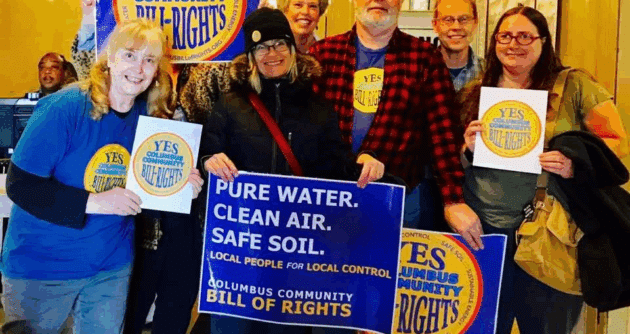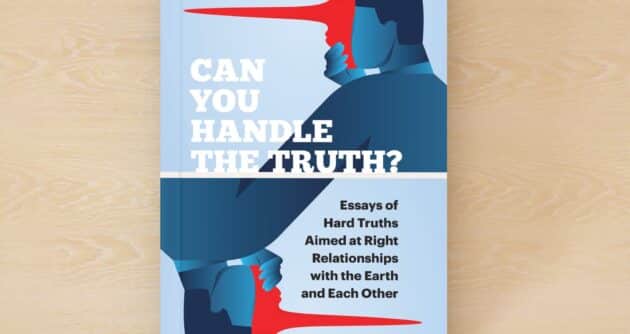COVID-19’s Impact on Direct Democracy
FOR IMMEDIATE RELEASE
June 1, 2020
CONTACT:
Bill Lyons
Columbus Bill of Rights, Co-organizer
columbusbillofrights@gmail.com
614-551-6194
CONTACT:
Tish O’Dell
Community Environmental Legal Defense Fund, Ohio Community Organizer
CELDF.org
tish@celdf.org
440-552-6774
COLUMBUS, OH: On March 11, 2020, Columbus Bill of Rights had secured almost 9,000 signatures to place the Columbus Community Bill of Rights (CCBOR) city charter amendment on their November 2020 ballot. The law asserts the right of people and ecosystems to “clean water, air, and soil, and to be free from activities that would violate this right.” The current deadline to turn in 9,870 valid signatures is June 18.
In response to COVID-19, the community group made the difficult, yet necessary decision to cease signature gathering on March 12. Currently, they are engaged in a campaign to pressure local officials to “not let democracy become one more victim of COVID-19.”
“What we seek is simply safety precautions and fairness. A failure of government officials to address this issue would be worrisome. It would make a mockery of the initiative process, because it would require the people to ‘choose between their health and exercising their constitutional rights,’” says petitioner Charlotte Owens, quoting the Governor’s rationale for postponing the March primary election due to the pandemic.
The group is not alone. CELDF partner communities have had petition gathering efforts suspended or threatened in Oregon, Florida, North Carolina, and Ohio. Others have been dissuaded from commencing. And across the nation, the ballot initiative process, supposedly protected by the First Amendment, is not being safeguarded by government officials during this crisis. A multitude of efforts are being forced to suspend their campaigns for change.
“Officials must not be allowed to get away with this. People’s health and democracy are not mutually exclusive,” says CELDF Ohio Community Organizer Tish O’Dell.
One Federal judge in Ohio seems to agree. Southern District Court Judge Edmund Sargus Jr. has ruled Ohio must allow groups proposing local marijuana initiatives and state-wide minimum wage and voting rights measures to collect signatures electronically because of the new coronavirus pandemic.
Columbus Bill of Rights has:
1. Requested an extension of a local one-year time limit to make up for time lost during the shelter-in-place order (City Council denied the request);
2. requested that the Columbus Department of Health (CDH) toll the time requirements for gathering signatures due to the pandemic emergency (CDH deferred to City Council);
3. requested that City Council use its authority to place the charter amendment on the 2020 November ballot (City Council denied the request).
“These are unprecedented times and we have witnessed many unprecedented decisions by government officials in order to protect both public health and democracy during this crisis,” says CCBOR organizer Bill Lyons. “Leaving direct democracy out in the cold says a lot about how much our representatives care about the people having a say.”
In 2018 the group collected over 18,000 signatures for a similar petition, passing the signature gathering process, which was approved by the City Council to go on the ballot. However, that petition was kept off the ballot by the Board of Elections and the courts.
Online petition calling on Columbus City Council to act
Additional information for Columbus Bill of Rights
Full text of the Columbus Community Bill of Rights petition
About CELDF — Community Environmental Legal Defense Fund
The Community Environmental Legal Defense Fund (CELDF) is building a movement for Community Rights and the Rights of Nature to advance democratic, economic, social, and environmental rights – building upward from the grassroots to the state, federal, and international level.



